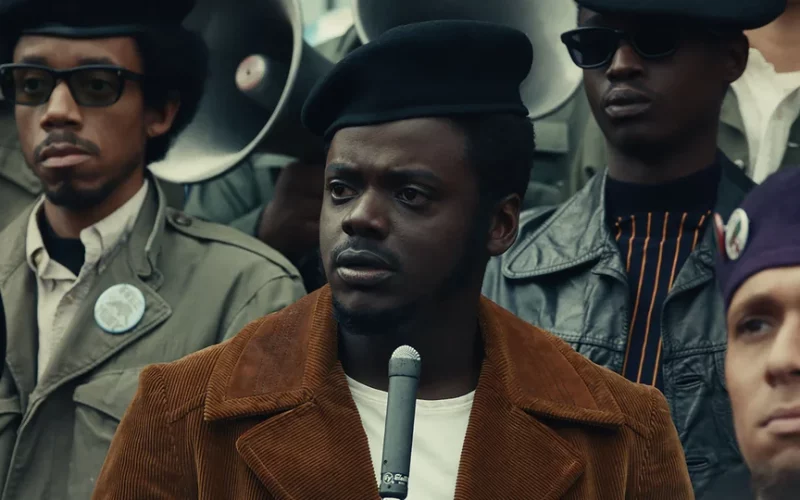Introduction
In a world where inequality, injustice, and human rights violations persist, cinema has emerged as a powerful tool for social change. Social justice movies and documentaries offer a unique opportunity to not only entertain but to educate, raise awareness, and encourage action on critical issues. These films bring to light stories of oppression, resilience, and activism, while encouraging viewers to take a stand against systemic injustice. In this article, we will explore some of the most impactful and thought-provoking social justice films and documentaries of all time.
The Rise of Social Justice Movies and Documentaries
Social justice movies and documentaries have become more popular in recent years. As awareness of issues like racism, inequality, and environmental harm grows, these films help bring attention to important topics. They inspire people to think critically about the world around them and encourage change. The rise of streaming platforms has also made these movies more accessible to a global audience, increasing their impact.
The Role of Social Justice Movies and Documentaries
Social justice movies and documentaries play a key role in shaping public opinion. They bring attention to issues that might otherwise be ignored or misunderstood. Through storytelling and real-life accounts, they educate viewers about injustice and inspire them to take action. These films can drive social movements, influence policy changes, and empower individuals to fight for their rights and the rights of others.
The Power of Social Justice Movies and Documentaries

Social justice films are more than just entertainment. They act as a mirror to society, reflecting both the flaws and the potential for change. They often highlight issues like racial inequality, poverty, LGBTQ+ rights, gender discrimination, and environmental justice. Documentaries, in particular, are excellent at offering real-world insights, presenting factual evidence, and featuring real-life heroes who are making a difference.
While dramas portray fictionalized stories that raise awareness, documentaries provide raw, unfiltered looks into real-world struggles, often inspiring viewers to take action. Both types of media are instrumental in shaping public opinion, mobilizing movements, and amplifying voices that have been silenced for too long.
Why Social Justice Movies Matter
Films have a unique way of connecting with people on an emotional level, which is why social justice movies have such a profound impact. They humanize complex issues, allowing audiences to relate to the individuals behind the stories. Whether it’s a film about racial inequality or the fight for gender equality, these movies help viewers empathize with the struggles of others, which can inspire them to get involved in activism or support policy changes.
Documentaries, in particular, shine a light on underreported or overlooked issues. By presenting facts, statistics, and real-life stories, they are often used as educational tools in schools, universities, and public campaigns. These films serve not only as powerful storytelling but also as critical resources for understanding global and local social justice issues.
How Social Justice Documentaries Spark Change
Documentaries are especially good at sparking change. They show real-life events and struggles, often exposing issues that are hidden from the public. Documentaries like 13th or The Act of Killing force viewers to confront uncomfortable truths. They not only inform but also challenge the audience to take action. Whether it’s through activism or supporting policy change, documentaries encourage people to be part of the solution.
Top Social Justice Movies
Here are some of the most notable social justice movies that have made a lasting impact on audiences worldwide:
1. 12 Years a Slave (2013)
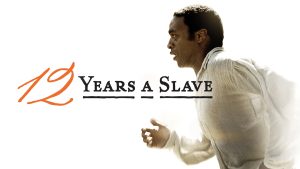
Based on the true story of Solomon Northup, a free Black man who was kidnapped and sold into slavery, 12 Years a Slave is a harrowing portrayal of racial injustice and the brutality of slavery in 19th-century America. The film won several Academy Awards, including Best Picture, and continues to serve as a powerful reminder of the historical trauma faced by African Americans.
2. Selma (2014)

This movie chronicles the 1965 Selma to Montgomery voting rights marches, led by Dr. Martin Luther King Jr. and other civil rights activists. Selma is not only a historical account of the struggle for equal voting rights but also a call to action for those who continue to fight for justice today.
3. The Pursuit of Happyness (2006)
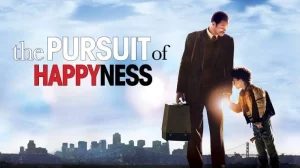
Starring Will Smith, The Pursuit of Happyness tells the story of a single father who battles homelessness while trying to secure a better future for his son. The film highlights issues such as poverty, inequality, and the American Dream. While uplifting, it offers a candid view of how difficult it can be to escape the cycle of poverty.
4. Milk (2008)

This biographical film about Harvey Milk, the first openly gay elected official in California, sheds light on LGBTQ+ rights and the struggle for equality. Directed by Gus Van Sant and starring Sean Penn, Milk serves as a tribute to the LGBTQ+ community’s fight for justice and recognition.
5. The Hate U Give (2018)

Based on the best-selling novel by Angie Thomas, The Hate U Give is a powerful narrative about police brutality, racism, and activism. The story follows Starr Carter, a young Black woman who witnesses the fatal shooting of her best friend by a police officer, which sparks a larger conversation about race and justice.
Top Social Justice Documentaries
Now let’s take a look at some of the most influential social justice documentaries that have educated and motivated viewers to act:
1. 13th (2016)
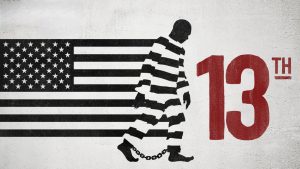
Directed by Ava DuVernay, 13th explores the connection between slavery, the Civil War, and mass incarceration in the United States. The documentary argues that the 13th Amendment, which abolished slavery, allowed for the rise of racial inequality in the criminal justice system. This eye-opening documentary is essential viewing for anyone looking to understand systemic racism.
2. Won’t You Be My Neighbor? (2018)

This documentary tells the story of Fred Rogers, the beloved host of the TV show Mister Rogers’ Neighborhood. Through interviews and archival footage, the film highlights Rogers’ unwavering commitment to kindness, empathy, and social justice. The film serves as a reminder of how one person’s compassion can make a world of difference.
3. The Act of Killing (2012)
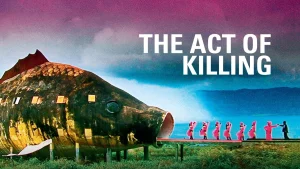
A chilling and unique documentary, The Act of Killing follows former Indonesian death squad leaders as they re-enact their brutal murders of suspected communists in the 1960s. The film explores the banality of evil and the ways in which oppressive regimes have historically justified their actions.
4. Inside Job (2010)

Narrated by Matt Damon, Inside Job explores the causes of the 2008 global financial crisis. It examines the unethical practices of bankers, politicians, and financial institutions that led to the collapse, illustrating the widespread impact of corporate greed and systemic corruption on ordinary citizens.
5. The Square (2013)

“The Square” is a documentary that follows the Egyptian Revolution of 2011, capturing the voices of the people who fought for change in Tahrir Square. The film highlights the struggle for democracy and the human cost of political change, offering an intimate look at the power of collective action.
How Social Justice Films Encourage Empathy
Social justice films have a unique ability to encourage empathy. By showing the real lives of people who are affected by social issues, these films allow viewers to step into someone else’s shoes. This helps people understand what it feels like to face discrimination, poverty, or violence. When viewers can relate to the characters and their struggles, they are more likely to feel a personal connection and be motivated to help improve the situation.
The Challenges of Social Justice Movies and Documentaries
While social justice films are impactful, they face challenges. One major challenge is that some topics may be difficult to watch, which can turn people away from these films. Another challenge is that not all social justice films get the recognition they deserve. Many independent films struggle to find funding or distribution, limiting their reach. Finally, making films about social issues requires careful research and sensitivity to the people and communities involved.
The Future of Social Justice Movies and Documentaries

The future of social justice films looks bright. With growing interest in activism and social change, these films will continue to play a crucial role in raising awareness. New technologies and platforms, like streaming services and social media, will make it easier to share these powerful stories with even more people. As society continues to evolve, social justice movies and documentaries will remain a vital part of the conversation, driving change and pushing for a fairer world.
Analysis Table: Social Justice Movies vs. Documentaries
| Aspect | Social Justice Movies | Social Justice Documentaries |
|---|---|---|
| Type of Story | Fictionalized, often dramatized narratives | Factual, real-life accounts |
| Emotional Impact | High emotional connection with characters | Strong emotional and intellectual impact |
| Purpose | Raise awareness through storytelling and drama | Inform, educate, and advocate for change |
| Accessibility | Popular with general audiences, widely distributed | Often niche, can be educational or targeted to activists |
| Key Strength | Powerful performances, cinematic impact | Real-world evidence, factual accuracy |
| Examples | 12 Years a Slave, The Pursuit of Happyness | 13th, Inside Job |
Comparative Table: Social Justice Movies & Documentaries
| Category | Social Justice Movies | Social Justice Documentaries |
|---|---|---|
| Content Type | Fictionalized stories inspired by real events | Real-life footage and interviews |
| Impact | Primarily emotional, highlighting individual struggles | Informational, with a focus on systemic change |
| Example Theme | Racial injustice, poverty, LGBTQ+ rights | Mass incarceration, environmental justice, financial corruption |
| Popular Audience | Broad, mainstream appeal | Activists, students, and those interested in deep analysis |
| Award Recognition | Often nominated for major film awards | Frequently acclaimed in film festivals and academic circles |
| Educational Value | High, but usually dramatized for effect | Extremely high, offering a comprehensive analysis of social issues |
Conclusion
Whether you are drawn to the gripping drama of social justice movies or the compelling, fact-based narratives of social justice documentaries, both genres offer invaluable perspectives on the struggles for equality and human rights. These films provide not only entertainment but also serve as powerful tools for social change, urging audiences to reflect on their own roles in advocating for justice. As we continue to fight for a more just and equitable world, these movies and documentaries will remain an essential part of the conversation.






